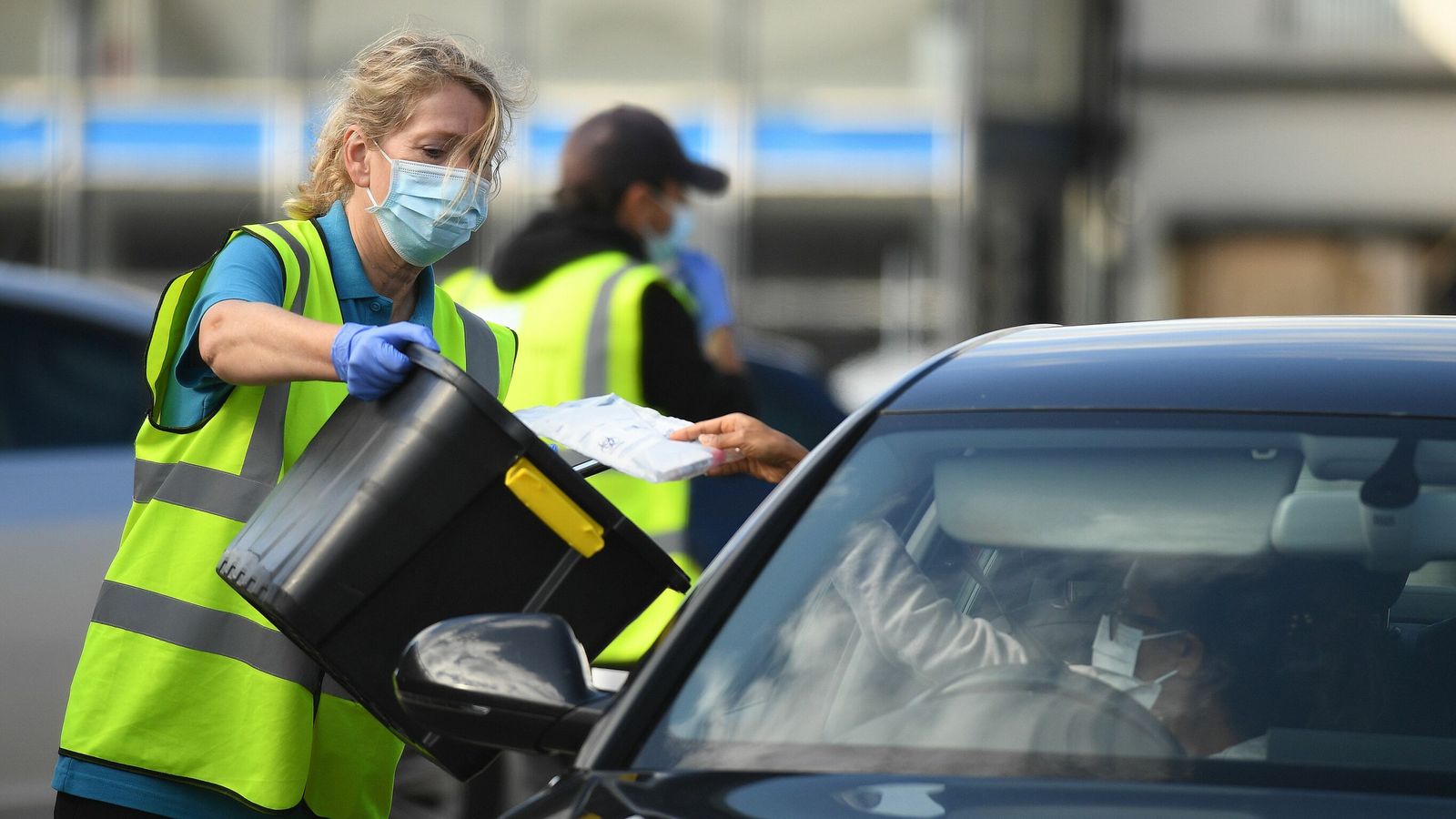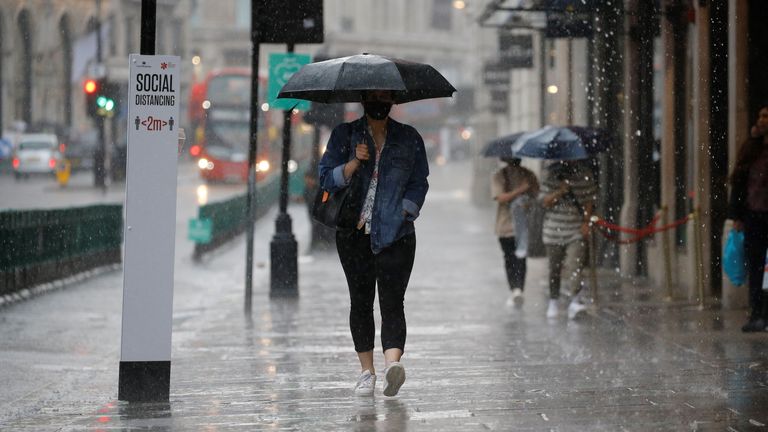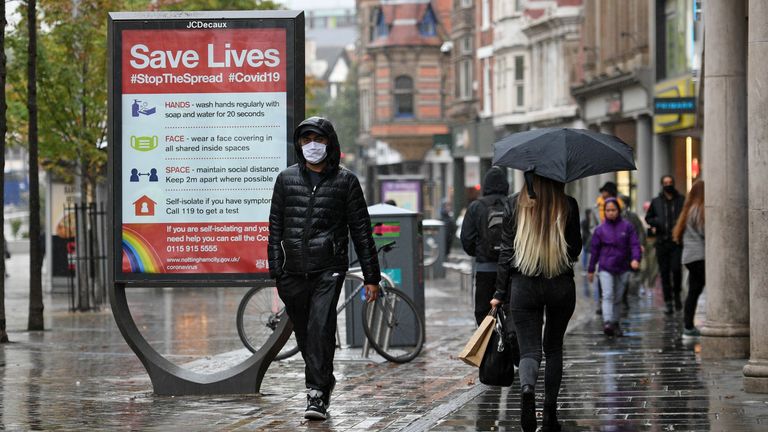The COVID-19 epidemic has reached a “critical stage” with almost 100,000 people a day in England being infected as the spread of the coronavirus rapidly increases, scientists have warned.
Researchers from Imperial College London say existing measures to control the virus aren’t working.
And they argue more stringent action is needed nationwide “sooner rather than later”.
The latest round of testing for the widely-respected REACT-1 study suggests one in 78 people across England has the virus. And the epidemic is doubling in size every nine days.
Professor Paul Elliott, one of the lead researchers, said: “We are in a critical period of the second wave of the epidemic.
“We are seeing an increasing rate in the virus in all regions.
“Whatever is happening – be it behaviour (of the public) or implementation of current policy – it has not been sufficient to turn down that rate of increase.”
The REACT-1 study is considered one of the most accurate assessments of the epidemic, with tens of thousands of randomly selected people tested whether or not they have symptoms roughly every month.
The swabs in the latest phase of the study were carried out between 16 and 25 October.
The results, which have not yet been peer-reviewed, show 96,000 people a day are being infected, almost as many as at the peak of the first wave.
The prevalence of the virus remains highest in the hotspots of the North.
In Yorkshire and Humber, one person in every 36 is estimated to be infected. In the North West, it’s one in 44.
But the fastest growth rates are now in the South, with the R number in London as high as 2.86. In the South East, South West and East of England it is above 2, signally exponential growth.
“The South is where the North was a few weeks back,” said Prof Elliott.
“There have been rapid increases, though from lower levels.
“If we are able to turn the R value down in the South, hopefully we wouldn’t get to those very high prevalence rates that we found in other regions.
“But something has to happen. Whether that is through the public realising how serious this is, with hospital admissions and deaths going up, or whether it requires more intensive measures, that is a policy decision.”
The experts warn: “The co-occurrence of high prevalence and rapid growth means that the second wave of the epidemic in England has now reached a critical stage.
“Whether via regional or national measures, it is now time-critical to control the virus and turn R below one if further hospital admissions and deaths from COVID-19 are to be avoided.”
Infection rates remain highest in those aged 18-24, but the most rapid increases were in older age groups, with the infection rate trebling in people aged 55-64 in the past month.
The study suggests an exponential rise in hospital admissions and deaths is inevitable in the coming weeks.
Professor Steven Riley, another of the lead researchers, said he was “really disappointed” when he saw the results.
“The straightforward projection of these numbers would lead to very high levels of cases by Christmas,” he said.
“If we are going to consider at some point over the winter doing something more stringent then it becomes a question of timing.
“These results argue for something sooner rather than later.”
The only bright spot in an otherwise bleak set of results was that the rate of increase in the epidemic in the North East of England has dramatically slowed over the last month, suggesting strong compliance with social distancing.
Professor Helen Lambert, a medical anthropologist at Bristol University, told Sky News that the government needs to rebuild trust with the public, so the country is once again united against the virus.
“There is confusion and frustration,” she said.
“We have levels, tiers, variation at local authority and district levels, and it’s hard to keep up with those.
“So it’s not a matter of people saying ‘to hell with it, let’s not bother’. The great majority are trying to do the right thing.
“People are still attempting to stick to what they know they need to do but it’s becoming increasingly difficult to tell what they’re meant to do.”
Jonathan Ashworth MP, the shadow health secretary, said: “With R estimated to be at 1.6 the virus is continuing to grow nationwide; inevitably leading to more loss of life, serious harm and immense pressure on the NHS.
“Boris Johnson should have used the school half-term to implement a time-limited circuit break to push infections down, fix test and trace and save lives. Instead, the prime minister told us his current approach would bring the R number under 1.
“Ministers must now outline whether they think their current approach is meeting that promise.”


